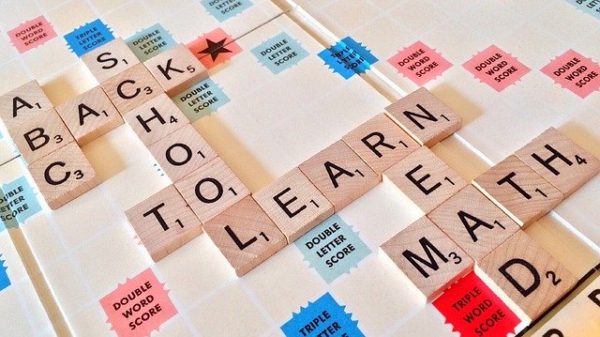Grammar is easily one of the most tedious aspects of learning a language. Like the troll under the bridge, we know that if we don’t succeed it’s because of the thing that lurks hidden within the language. But there are ways to make grammar a fun exercise. There are language learning games that can make studying enjoyable.
The following are five such games that can help you remember grammar effectively. The more memorable the lessons and language learning games, the more you will take away from them.
Sorry, but these language learning games are not for beginners. Once you reach an intermediate level and start to study the things that really make you think in your target language, the games can make it easier to understand.
Sprint Review – 5 Minute Sessions
Sprints are meant to make you think as quickly as possible, delving further into a single aspect – in this case, a specific grammar element. Five-minute intervals work well here because usually, it is enough time to reach a goal without feeling like you are getting into obscure territory.
Here’s how you create your sprints.
- Select your grammar element. It can be a single word, such as an accusative preposition or a type of measurement (Asian languages treat item counting very differently than Western languages).
- Get paper and a pencil or pen.
- Write down as many contextual phrases as you can think of that use that one component.
You need to come up with complete sentences for your list unless you are operating with topics like time, in which case phrases are adequate.
The purpose is to help you see how to use that proposition, counting, or idea within a range of different contexts. For example, in English you go “to the house.” The direct German translation for “to” is” zu,” but if you are “zu Haus,” you are already home. “Noch” is the German for “to” that shows action. While English plays fast and loose with accusative and dative prepositions, German is much more structured, requiring actions to use one for “to” for action and another for inaction.

The Silly Story
Remember when you were learning the language and you were given ridiculous sentences that worked within your limited vocabulary? You heard things like “the bear drinks beer.” Well, it did one thing – you learned those vocabulary words.
This language learning game works on the same principle. The more outrageous the ideas, the more memorable they will be. The only thing that matters is that you use the grammar properly. The ideas and story can be as crazy as you want them to be.
Keep it short. Less than 20 sentences ought to be more than enough to get the concept. Now is when the real studying begins.
- Pick one aspect of grammar to study.
- Start a study time of two or three minutes. Be consistent in the time you use – it can be adjusted later to be shorter as you get better.
- Find as many mistakes in your writing as you can for the element you selected. If you see other mistakes, all the better.
- Post your story and corrections for a native speaker to correct or ask your tutor to review it.
- Review their corrections and rewrite it with those corrections.
- Compare the clean version with the one you first wrote.
The more often you do this, the more you will see what areas you have trouble with. Then you can start focusing on fixing those recurring problems.
Also note where you are improving. That’s incredibly important so that you can see your progress.
Rephrasing Challenge
You know that nearly every sentence in English has at least five or six different ways of being phrased. Well, try doing that in your target language.
- Pick a story (newspaper, fiction, or even from a workbook) and find a sentence to use.
- Flip a timer that is five minutes long.
- Rewrite the sentence as many times as you can using different phrases. Get as crazy as you want. Hyperbole and exaggeration are always entertaining and make a clear point about the ridiculous.
- Look for your mistakes.
The last step is particularly important because it forces you to analyze your own work and apply grammar rules. Of course, you can also have it reviewed when you think you have caught all of the potential errors.

Pattern Identification
Most people tend to think in patterns. It’s just in our nature because patterns help us better understand the word. Notice that nearly every time you hear a new word in English, you start to hear it around you all the time. It was probably always being used, you just didn’t notice because you didn’t know it.
Fortunately, there are language learning games that make us of that, like Pattern Identification.
Find an article in both English and your target language. Many news websites have multiple versions of their articles, so a quick search should pull up something you can use. Once you have a site, the rest is pretty easy.
- Select between 10 and 15 sentences.
- Look for grammatical patterns in both articles.
- Focus on the following questions to help you find less obvious patterns.
- What is the verb placement and are there deviations (very much so for English)?
- Are there transition phrases and words, such as “that”, “so”, “because?”
- Where are the adjectives and adverbs placed?
Mad Libs!
Mad Libs has been around for a long time, teaching kids the functions of the different word types and making it interesting. These random stories taught you what verbs are, and then illustrated in the craziest way possible – random use of verbs within a story.
It’s actually quite easy to create your own.
- Find an article or story that is relatively short.
- Remove between 10 and 20 words.
- Identify what part of speech that word is. Remember, numbers and body parts are unique kinds of words that are called out separately. For example, in the sentence” Stacy grew an inch in a year,” you can remove an inch and change it to another unit of measurement.
- Get another piece of paper.
- Randomly pick words that are the same parts of speech needed to fill the blanks.
- Read the story back with the new words you selected.
Don’t forget to make it specific to the language you are learning. You may need to specify singular or plural for nouns in French, but it won’t matter in Japanese since they don’t make the distinction.







